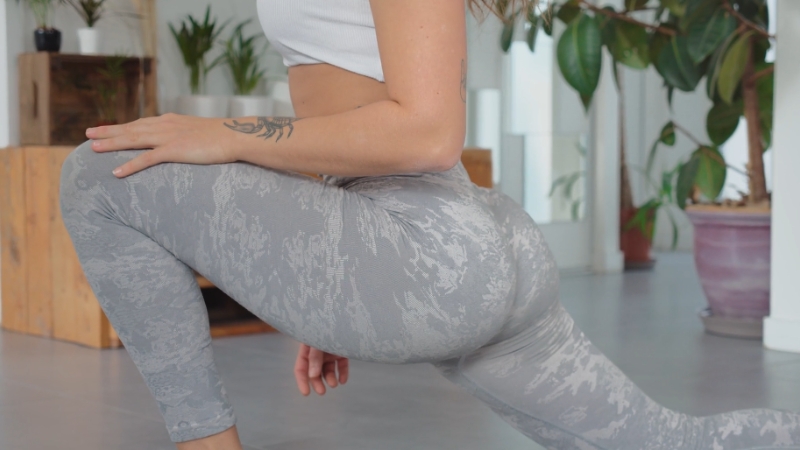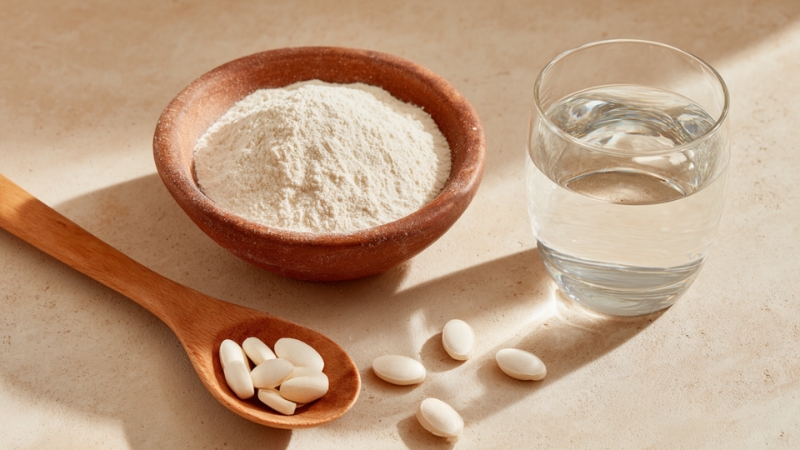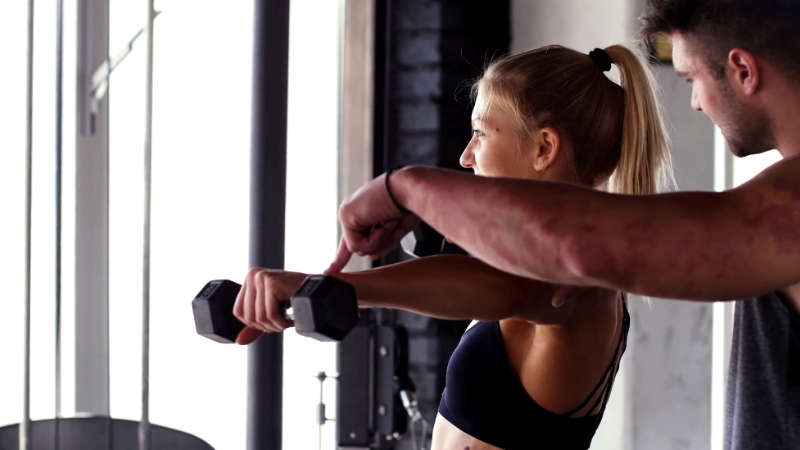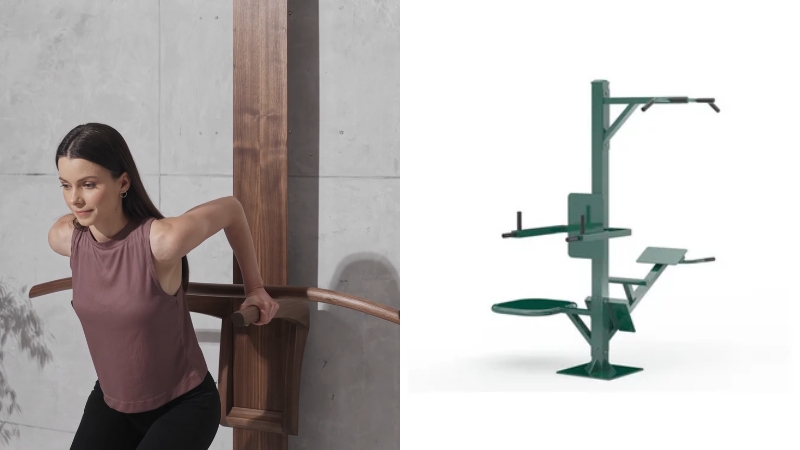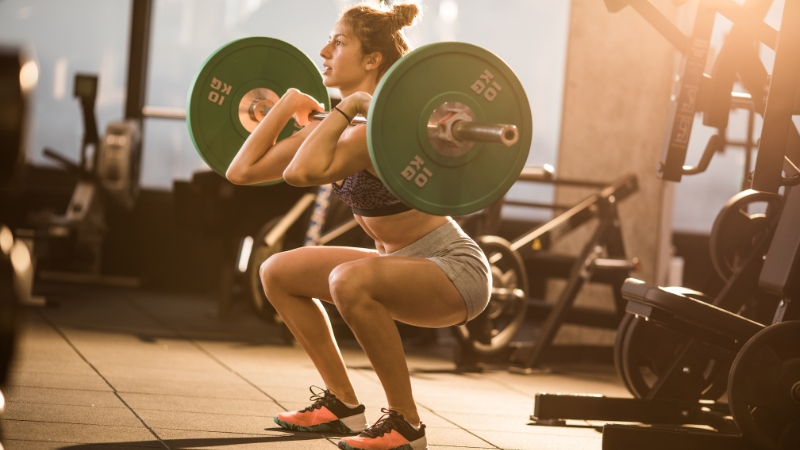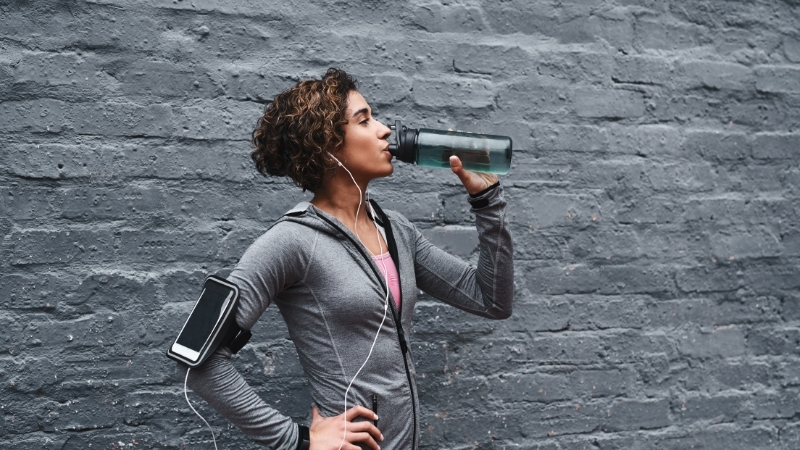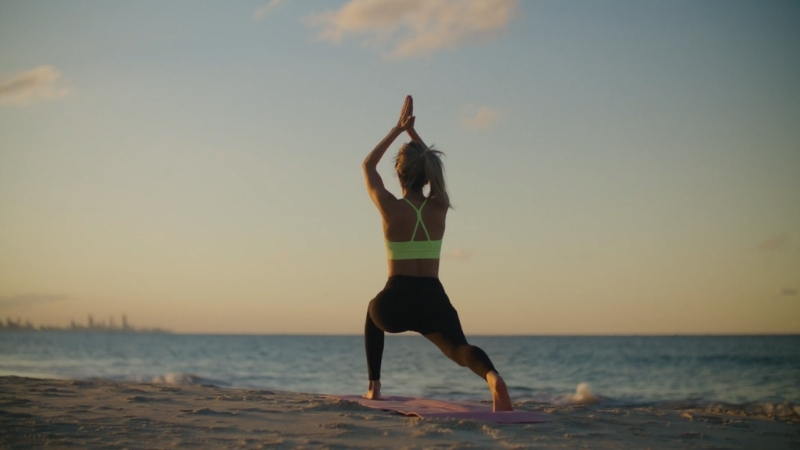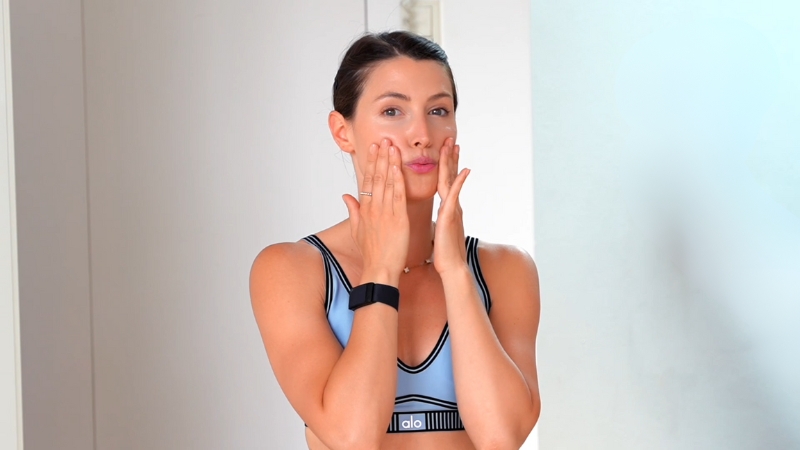
Share Post:
Aging doesn’t mean giving up on feeling radiant in your skin. Somewhere between chasing kids, careers, and trying to stay hydrated, many women over 40 find themselves looking in the mirror and wondering when their cheeks lost their lift or why their neck suddenly looks a little softer.
That’s where facial exercises come in. They’re gentle, non-invasive, and surprisingly effective when done consistently. No needles, no downtime, just your own two hands and a few minutes a day.
And while the skincare aisle is full of promises, facial muscle toning is something you can actually do, not just apply.
Let’s take a closer look at what facial exercises can really do, especially for women over 40, and then walk through 10 simple moves that can help bring back tone to the cheeks and firmness to the neck, without leaving your bathroom mirror.
1. Cheekbone Lift
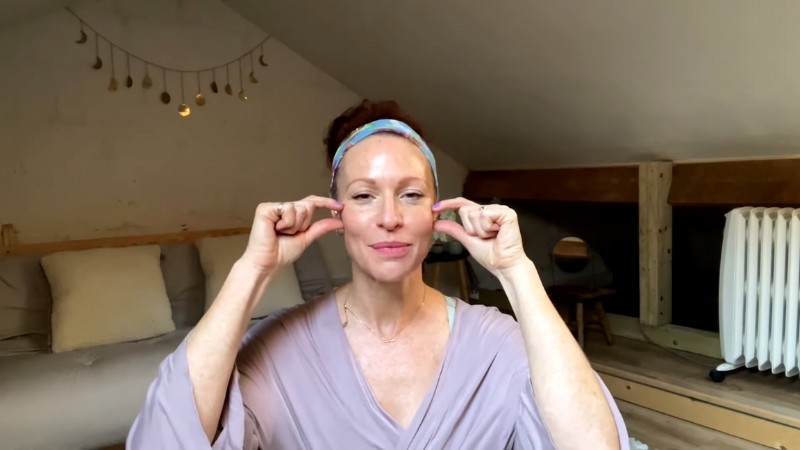
- How to do it: Place your fingers on your cheekbones. Gently push up, lifting the skin. Form an “O” shape with your mouth—wide and long.
- Hold: 5 seconds
- Repetitions: 10 to 15
- Why it helps: Strengthens the cheek muscles and adds structure where fullness tends to fade first.
2. Happy Cheeks Sculpting
- How to do it: Close your lips and smile. Press your index fingers at the corners of your mouth, then slide them up toward your cheekbones, keeping the smile tight.
- Hold: 20 seconds
- Repetitions: Twice
- Why it helps: Targets muscles that support the cheeks, helping them appear lifted and firmer.
3. Cheek Lifter
- How to do it: Open your mouth wide. Cover your teeth with your lips. Lift your cheeks as high as you can—think of a big forced grin.
- Hold: 10 seconds
- Repetitions: Up to 50
- Why it helps: It builds volume in the midface area, which often deflates with age.
4. Jaw and Neck Firmer

- How to do it: Say “aah” slowly. Tuck your lower lip and corners inward. Scoop your jaw forward and slowly lift your chin.
- Hold: 20 seconds
- Repetitions: 3 times
- Why it helps: Engages the platysma and jawline, areas prone to sagging and softening.
5. Neck and Jaw Stretch
- How to do it: Tilt your chin up at a 45-degree angle toward one side. Stretch gently and hold. Then repeat on the other side.
- Hold: 3 seconds
- Repetitions: 20 each side
- Why it helps: Relieves tension and firms the neck muscles, improving definition around the jaw.
6. Chin Up Chewer
- How to do it: Lie flat on your back. Tilt your chin up and mimic a chewing motion with your jaw.
- Duration: 30 seconds
- Why it helps: Strengthens the area under the chin and helps reduce double chins. For added support, some women pair these exercises with a LED double chin device, which uses light therapy to tighten and tone the jawline area, enhancing overall results.
7. Tongue Out
- How to do it: Sit tall. Look at the ceiling, pucker your lips slightly, and stick your tongue out as far as possible.
- Hold: 5 seconds
- Repetitions: 10 to 15
- Why it helps: Stimulates the neck and jaw muscles in an unusual but effective way.
8. Forehead Smoother
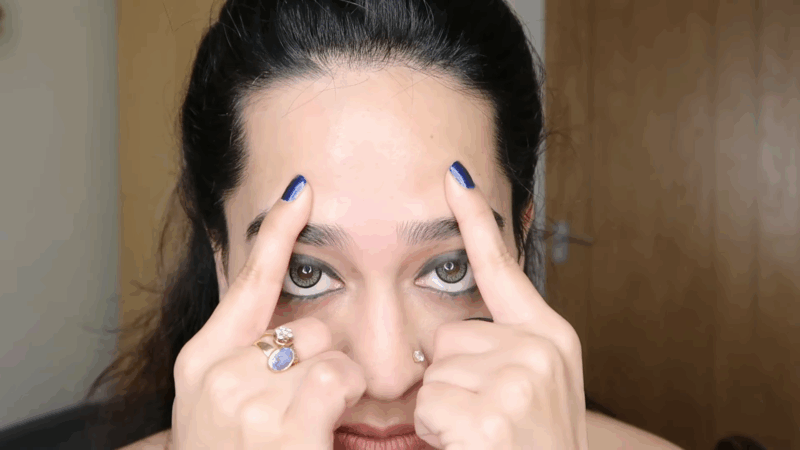
- How to do it: Make a “C” shape with your thumbs and index fingers around your eyes. Gently pull the forehead skin down while raising your eyebrows.
- Duration: 30 to 60 seconds
- Why it helps: Though it targets the forehead, it encourages muscle coordination that benefits overall facial balance, indirectly improving cheek and neck tone.
9. Eye-Opener
- How to do it: Use fingers to gently hold the brows and cheeks. Lift your eyebrows high, squint hard, and repeat.
- Repetitions: 50 times
- Why it helps: It adds strength to the upper cheeks and eye area, helping lift the whole face.
10. Smiler

- How to do it: Smile gently without crinkling your eyes. Do it 50 times. Then hold a soft smile for 50 seconds.
- Why it helps: Retrains muscles around the mouth and cheeks, encouraging natural elevation and preventing downward movement.
Still craving more immediate definition? A safe jawline filler can offer sharper contours while you wait for muscle toning results.
Why Women Over 40 Are Turning to Facial Exercises
Aging naturally reduces collagen, elasticity, and muscle volume, especially in the face and neck. You might start noticing hollow cheeks, a softening jawline, or that extra fold under your chin. These aren’t flaws; they’re normal.
But there’s nothing wrong with wanting to support your face like you would your body at the gym.
Facial exercises target over 50 muscles from the collarbone to the forehead. When used consistently, they improve circulation, lift sagging skin, and boost tone, much like resistance training, but for your face.
A 2018 Northwestern University study published in JAMA Dermatology backed up what many facial yoga enthusiasts already believed. After 20 weeks of facial exercise, participants saw real changes, not imagined ones.
Their cheeks were fuller, their faces looked younger, and on average, dermatologists guessed them to be three years younger than before.
So yes, there’s science behind the method. But the real success comes from sticking with it.
What Makes Face Exercises Work?
@joshzeichnermd Do facial exercises work? #faceexcercise #skincaretiktok #skincaretips #learnedontiktok #dermatologist ♬ Vacation – C0NTR4IL & We Are One
The Northwestern study focused on 32 targeted exercises developed by Gary Sikorski of Happy Face Yoga. The women in the study (aged 40–65) practiced for 30 minutes a day for 8 weeks, then every other day for 12 weeks. Results? Cheeks lifted. Faces looked younger. Participants were thrilled.
Muscles in the face can atrophy just like muscles in the body. But when you actively engage and strengthen them, they begin to fill out again, naturally supporting the overlying skin. Better blood flow also means better skin tone, fewer fine lines, and a glow that no serum can fake.
Of course, research is ongoing, and some dermatologists remain cautious. But for many women, the results speak for themselves.
Tips That Make a Big Difference
It’s not just about what you do—it’s also how you do it. A few habits can make your facial exercises even more effective:
| Tip | What It Does |
| Stay Consistent | Aim for 3–5 sessions per week, 20–30 minutes each. Like the Northwestern study, results build slowly. |
| Hydrate and Nourish | Drink water and eat fruits, veggies, and healthy fats. Your skin needs fuel from the inside. |
| Use Good Skincare | Moisturizers, serums, and sunscreen support elasticity and prevent further aging. |
| Massage First | A light facial massage can increase blood flow and warm up muscles. |
| Ask a Pro | If you’re unsure about form, some certified instructors offer virtual sessions. |
What to Watch Out For
Facial exercises are safe for most people, but as with anything, moderation matters. Overworking muscles can lead to strain, especially around sensitive areas like the eyes. Always go slowly and stop if you feel pain.
And while the Northwestern study showed encouraging results, it involved just 27 women, with 16 completing the full program. That’s promising, but not definitive.
Sources like Healthline and the Cleveland Clinic acknowledge that more research is needed to fully endorse facial exercises as a standalone anti-aging solution. Still, many professionals agree that there’s little harm in trying—as long as expectations stay realistic and the technique is sound.
Final Thoughts
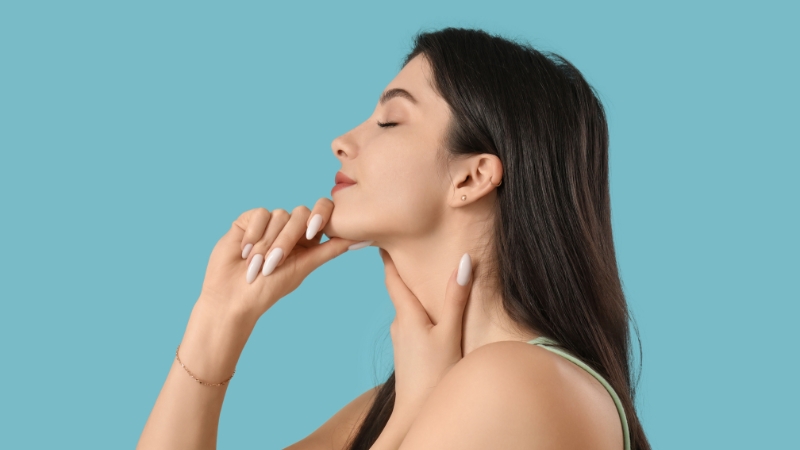
There’s something empowering about taking aging into your own hands—literally. Facial exercises aren’t magic, but they offer something skincare can’t: actual muscle engagement.
The science, though early, suggests real change is possible. And it’s not about trying to look 25 again. It’s about showing up in the mirror and feeling like yourself—just with a bit more lift and tone.
If you’re curious, start slow. Pick three exercises. Try them every other day. Track your progress. You don’t need to believe in miracles—just muscle.
Whether it’s a subtle lift in your cheeks or a firmer jawline, those small wins add up. Especially when they come with zero side effects and a touch of self-care.
Related Posts:
- Simple Training Tips for Adults Over 50 Who Want to…
- Top 12 Exercises That Help Women Over 40 Stay Lean…
- Jawline Routine For Women - Steps For Better Facial…
- Can You Really Sculpt Your Face with Exercise?
- 10 Simple Exercises to Stay Active at Your Desk Job
- How to Improve Neck Alignment Based on Your Sleep Position


